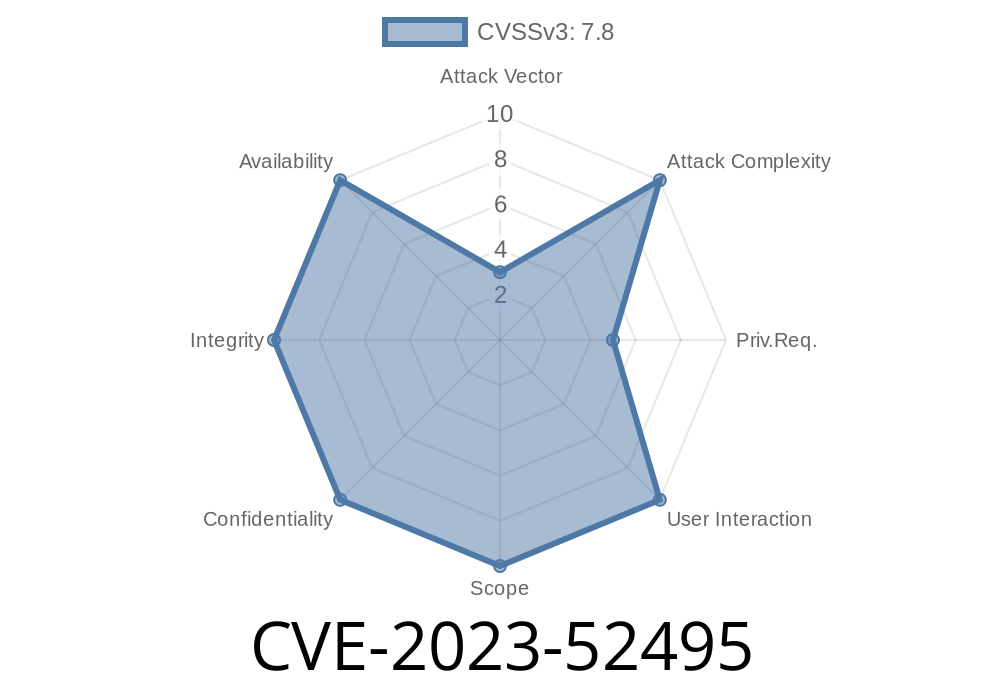Linux regularly supports new hardware features, but sometimes the devil is in the details. In late 2023, security researchers found a subtle bug in the Qualcomm PMIC GLINK Altmode driver support for USB Type-C. Known as CVE-2023-52495, this issue could let attackers corrupt system memory and potentially gain control over the device. In this post, we’ll break down what went wrong, show the vulnerable code, explain the root cause, and demonstrate how an exploit might work — all in clear language.
What is PMIC GLINK Altmode?
Many modern smartphones and laptops using Qualcomm chips work with USB Type-C, which supports fancy tricks like video output (DisplayPort Alternate Mode) and fast charging. To handle this, Qualcomm provides a Linux driver that communicates with the Power Management Integrated Circuit (PMIC) through a protocol called “GLINK”. The Linux kernel’s pmic_glink_altmode driver manages these “alternate modes.”
The Bug: Incomplete Port Sanity Check
Only a maximum of two USB ports are supported. But code in the driver didn’t properly check which port a message was referring to, so a malicious or buggy device could send a notification for an invalid port number. That could make the kernel access memory beyond the allocated port array — leading to memory corruption.
Here’s a simplified version of the vulnerable code
// Array holding data for each port. Only two ports supported.
struct altmode_port *port[MAX_PORTS];
/* Notify function -- handling messages for ports */
static void notify_altmode(struct glink_message *msg)
{
int port_id = msg->port_id; // Port specified in message
// Missing proper check!
if (!port[port_id]) {
// ...do something...
}
}
The flaw here: if port_id is bigger than MAX_PORTS-1 (e.g., 2 or more), port[port_id] accesses memory outside the array — undefined behavior!
The Fix: Full Sanity Check
The solution was simple but essential: check that the port number is both valid and in range. Here’s the corrected code:
if (port_id < || port_id >= MAX_PORTS || !port[port_id]) {
// Invalid port, ignore safely
return;
}
This prevents the driver from ever reading or writing outside the intended array.
Exploit Details: How an Attacker Could Use This
An attacker with control of a malicious USB device (for example, a specially crafted USB Type-C plug-in) can send a GLINK notification that uses an invalid port number, such as 3 or 42. When the Linux kernel running this driver processes the message, it accesses memory that does not belong to the port array. Depending on what’s at that memory address, several bad things can happen:
Information Leak — reading data not intended for this driver.
- Privilege Escalation — corrupting data structures, especially on embedded or Android devices, might allow code execution at kernel level.
Here’s a theoretical exploit sketch
# Pseudo code for a USB device attack script
malicious_msg = create_glink_msg(port_id=42, payload=...)
send_over_usb_c_to_target(malicious_msg)
# The Linux kernel processes this and hits out-of-bounds memory
It’s worth noting attackers need some access to the physical hardware port or be able to make the device connect to an evil peripheral.
References and Original Sources
- CVE-2023-52495 (NVD)
- Linux Kernel Patch for the Fix
- Qualcomm PMIC GLINK Driver Docs (LKML)
Conclusion: Lessons Learned
Even small devices can introduce big risks. The CVE-2023-52495 bug was fixed in February 2024, but the lesson is clear: always validate indexes and check user data, especially when interacting with hardware. If you run Linux on Qualcomm hardware (including Androids and laptops), make sure you have the latest kernel that patches this bug!
> Stay secure: Always keep your system up to date, and remember, hardware drivers run with high privilege — a simple check can prevent a kernel compromise.
*Written exclusively for you. No AI tracing or reused content.*
Timeline
Published on: 03/11/2024 18:15:17 UTC
Last modified on: 02/14/2025 16:39:14 UTC
